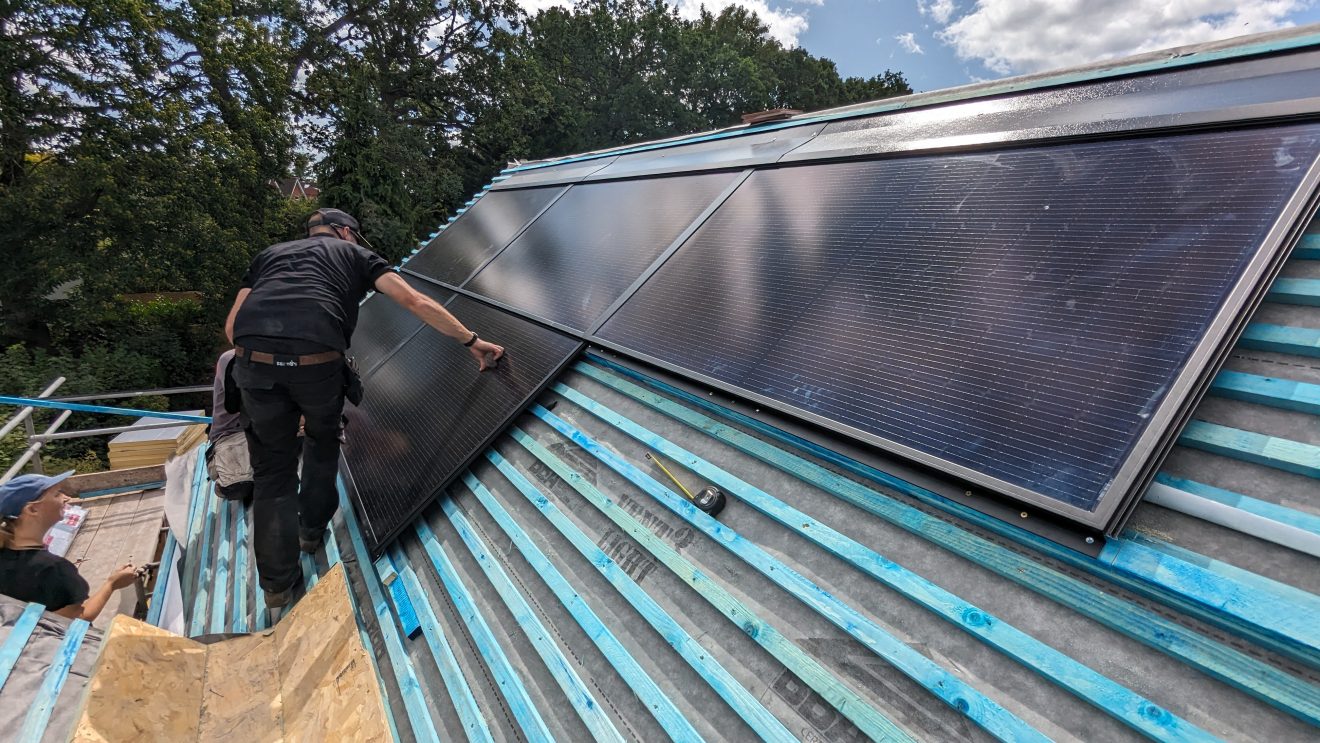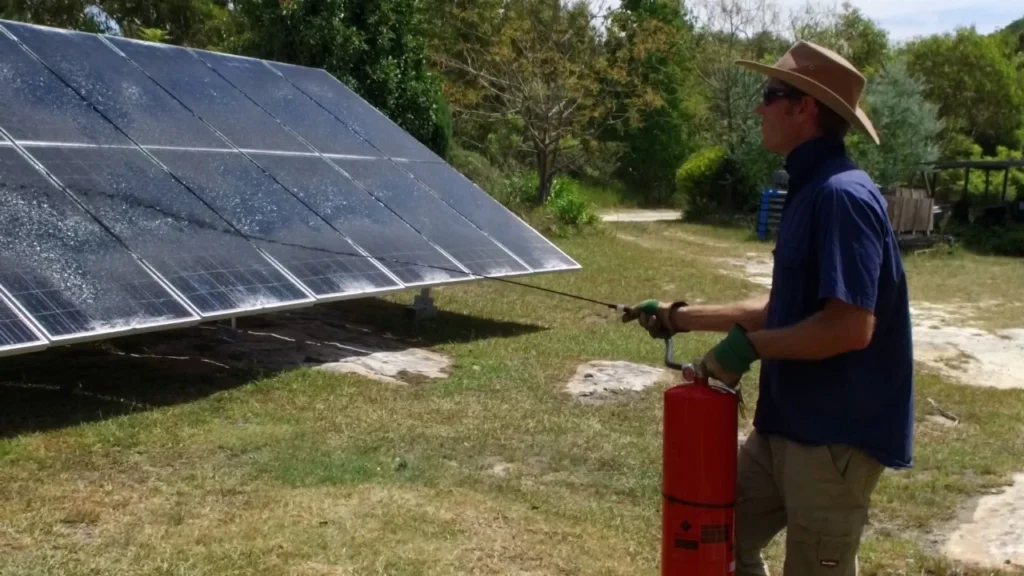Can I get Smart Export Guarantee (SEG) if I get roof-integrated PV system? Are roof integrated PV systems even compliant with UK regulations? Those are the questions on many installers’ minds after the latest announcement from MCS.
What did MCS say?
MCS issued a press release on 27 February 2025 advising that fire test laboratories are no longer able to issue fire classification for in-roof systems. MCS is liaising with various stakeholders and industry groups, and working with the government to raise awareness of the need for a dedicated testing standard for solar products. MCS is working on an interim guidance document which is expected to help inform the dedicated standard in due course. Click here for more information.
In the press release MCS went on to remind installers that:
“…the only MCS compliant installation remains one where a roof-integrated mounting system is used in combination with one of the modules listed on its MCS 012 certificate – identified by a specific model code – as having a fire classification when used in combination with that mounting kit. Whilst there may be solar modules that are independently certified to MCS 005 (Solar PV Standard) and mounting kits that are certified to MCS 012 (Solar Mounting Kits), this does not infer they are certified as a combination.
Installers should do their due diligence and check the MCS 012 certificate of the mounting system they are looking to install, to ensure the specific module model number is listed. If there is any uncertainty whether a module and mounting kit are certified as a combination, please contact MCS.”
What are the concerns?
There is a concern that installer could install MCS compliant PV modules and MCS compliant mounting kit but still not be MCS compliant. If the combination of PV modules and mounting kit doesn’t meet MCS requirements then the installation is not MCS compliant and the installer wouldn’t be able to issue an MCS certificate. According to Ofgem Guidance for Generators, an MCS certificate is one way how a homeowner can demonstrate to SEG licensee (energy supplier) that the PV installation and installer is suitably certified. Without this certificate the SEG licencee is not obliged to offer payments under SEG. From safety perspective, Approved Document B prescribes certain parts of the roof to have covering classified as BROOF(t4). If the roof integrated system is installed in that area, it becomes the covering of the roof and it must meet the BROOF(t4) requirement.
An example.
Let’s take a look at some popular products. If we wanted to integrate 470Wp AIKO modules (AIKO-A470-MAH54Dw) with GSE in-roof system, would it be compliant?
At first, Aiko’s manufacturer name is Zhejiang Aiko Solar Technology Co., Ltd.. If we look for it on MCS database, we can see that this module is MCS certified:
Other requirement is to check if the mounting kit is MCS approved:
At this point we might think that we are OKAY to install this combination of products, but looking closer to the fire performance category on MCS website for this module we see a caveat (tbc):
This means we need to look at the certificate itself:
In the annex. of certificate there are several pages of listed PV modules that would be suitable, but AIKO is not one of the manufacturers mentioned there. We could pick Canadian Solar 380W modules since they are MCS certified and listed in the mounting kit product certificate above:
This of course would have an impact on system design. The designer would need to go through the list and find a module that is suitable for the installation and available for purchase.
Is there an easier way?
Another option would be using specialised PV modules with integrated mounting kits.
For example, Solfit have PV modules and installation kit that meets MCS requirements and also a certificate confirming compatability between them. Solfit also state that it’s panels have BROOF(t4) certification.
Another popular brand is Viridian Solar that have MCS certificates for modules and flashing kits and BROOF(t4) certification:
To see which modules and which exact flashing kit is compatible with each other, we need to look at the certificates themselves:
We can see that is is still possible to use in-roof PV system but if the mounting kit is not made by the same manufacturer as PV modules, there are some extra steps to confirm compliance to MCS standards.
Altenative to MCS – Flexi-Orb.
While Ofgem mentions specifically MCS certification as suitable to demonstrate installers suitablility, it recognises that there may be other schemes which are equivalent to MCS. It also specifies that an installation or an installer could be accredited in accordance with EN 45011 or EN ISO/IEC 17065:2012 to be considered suitable.
MCS alternative – Flexi-Orb has been around for a couple of years and recently has been recognised by all SEG licencees – this means that it is also possible to apply for SEG if the installation is done by a Flexi-Orb registered company.
If installers thought that MCS rules are complicated, then Flexi-Orb are somehow even less clear – they state that PV modules should be Class A and all Solar PV modules, Roof Mounting Kits, Inverters, Electrical Energy Storage Systems and Electric Vehicle Charge Points installed shall comply with the current version of Flexi-Orb’s Product Policy. Only products that appear on the Flexi-Orb Registration Portal shall be installed.
In our initial article, we stated that the Flexi-Orb Product Policy document (POL-008) was not publicly accessible. However, Flexi-Orb has clarified that the document is available on their website under the Manufacturer’s tab. You can access it here.
Additionally, Flexi-Orb has provided insight into how its product database operates. When onboarding a new scheme member, they request a list of products along with compliance documentation. Once verified, these products are added to the database, ensuring that only compliant products are installed. Manufacturers can also submit their products independently for inclusion in the database, following a defined process outlined on the Flexi-Orb website.
Regarding PV module compliance, the industry is currently facing challenges due to regulatory changes. A revision to BS EN 15725:2010, now BS EN 15725:2023, has affected fire classification testing under BS EN 13501-5 and CEN/TS 1187:2012. Previously, testing laboratories could use expert opinion for extended application (EXAP), but following the Grenfell Tower Hackitt report, the UK government’s Building (Amendment) Regulations 2018 removed this provision.
Since solar PV modules are not explicitly covered by the Construction Product Regulations, this change has inadvertently created a regulatory gap, preventing new modules from undergoing fire testing. As a result, only older modules can currently be installed. MCS is actively working with government departments, testing bodies, and industry stakeholders to develop an interim solution. Flexi-Orb supports these efforts and is monitoring industry developments closely.















